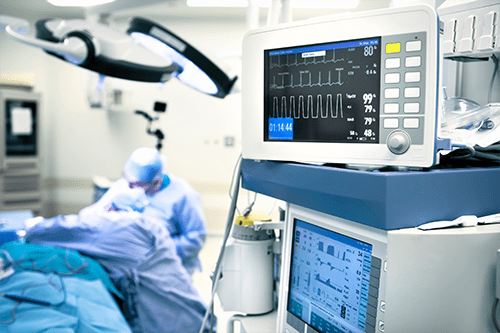How Apical Instruments Streamlined and Improved Design Controls
 In an industry as highly regulated as medical devices, having all information about the design and production process of each product in one place is more than a nice-to-have. Using a single system to manage the product, quality, and design controls is key to delivering a safe and effective product on time.
In an industry as highly regulated as medical devices, having all information about the design and production process of each product in one place is more than a nice-to-have. Using a single system to manage the product, quality, and design controls is key to delivering a safe and effective product on time.
My company, Apical Instruments, helps companies design and manufacture complex devices, while complying with the U.S. Food and Drug Administration (FDA) regulations and ISO standards. The need to comply with both FDA regulations and the ISO 13485 standard regarding medical devices makes paper-based systems inefficient and untenable. Yet, when I arrived at Apical Instruments, I was not surprised to see that there was legacy software in place for managing some design control functions.
Unfortunately, the system was set up such that revising a part still entailed extensive work and documentation. Additionally, although the system was being used for quality system documents, it wasn’t being used for bills of materials (BOMs).
As a contract manufacturer with over 10,000 total parts to manage for our customers, it was difficult to track revisions and changes effectively. During the design process, a single customer may have several top-level assemblies, numerous subassemblies, and as many as five engineering change orders (ECOs) each week. At times we had up to 10 different projects going on simultaneously with three to five ECOs per week for each one. This combined change volume was difficult to manage, so our old system just wasn’t viable long term.
After careful assessment of our needs and a detailed review of several product lifecycle management (PLM) systems, with full support of our CEO, Bruno Strul, we selected Arena because it also provided a single solution encompassing a quality management system (QMS). With Arena’s solution, we have had enormous productivity gains, passed FDA audits more easily, and increased overall customer satisfaction. Read our Whitepaper about enabling design controls.
Productivity gain
The increase in productivity is attributed to four main areas:
- Having all design and production-related documents in one place.
- Being able to search for a specific document by customer.
- Having an efficient way to handle all ECOs.
- Streamlining how we track customer feedback and responses.
 Arena’s system enables us to store and track all our design control documents, including risk assessment documents, software design documents, hardware design documents, and design reviews. It also links these documents to our customer’s design history files (DHF), which is critical during an FDA audit.
Arena’s system enables us to store and track all our design control documents, including risk assessment documents, software design documents, hardware design documents, and design reviews. It also links these documents to our customer’s design history files (DHF), which is critical during an FDA audit.
Automating the ECO review process has saved us a tremendous amount of time. Rather than being handled manually with static documents, ECOs are entered into the Arena application and are electronically submitted to the appropriate reviewers for approval. Each reviewer can review the reason for change, all affected parts, and any BOM changes before rejecting or approving the change. If nonessential or minor changes are made (such as fixing a typo), we use a type of change called an “Admin ECO” which still gives us full visibility and traceability about the reason the change was made.
ISO 13485 requires medical device manufacturers to address customer feedback and the Arena solution handles this effectively. Customer feedback such as CAPAs, customer complaints, feedback for the next design, and device returns are documented, tracked, reviewed, and approved by responsible stakeholders. These quality processes can be linked to specific designs so that future changes are not lost with time.
Successful audits
 Arena’s unified solution helps companies like ours prepare for audits quickly and easily. Throughout the design process, the system ensures that relevant information is placed into the DHF. We can also link specific documents to the device master record (DMR). Because the entire product record (BOMs, drawings, specifications, etc.) and the quality record (CAPAs, DHFs, etc.) are connected throughout the product lifecycle, we can be completely confident when facing audits.
Arena’s unified solution helps companies like ours prepare for audits quickly and easily. Throughout the design process, the system ensures that relevant information is placed into the DHF. We can also link specific documents to the device master record (DMR). Because the entire product record (BOMs, drawings, specifications, etc.) and the quality record (CAPAs, DHFs, etc.) are connected throughout the product lifecycle, we can be completely confident when facing audits.
In fact, we have been through several FDA audits without issue, and our customers have a high confidence level that if and when Apical is audited, the outcome will be positive.
Increased customer satisfaction
Today, we’re able to extend web-based access to Arena’s application to our customers so they can securely review and collaborate with us throughout product development. With this access, every customer can review and sign all of the final documents for their products without leaving the system of record.
Conclusion
Arena has enabled us to successfully manage the entire product release process with the complete product record, quality documentation, and necessary design controls documents in a single system. Today, our product release processes are more than 30 percent more efficient. Our ability to meet ISO and FDA regulations fosters trust with our medical device customers and ensures we deliver high-quality devices to market.


